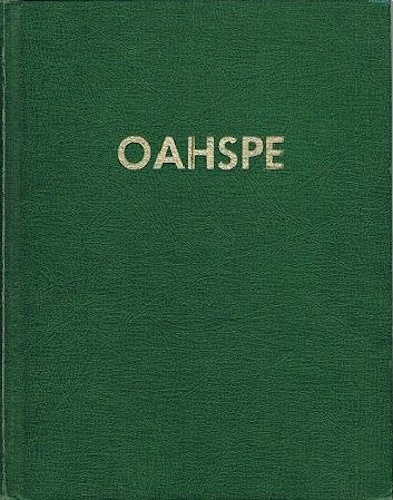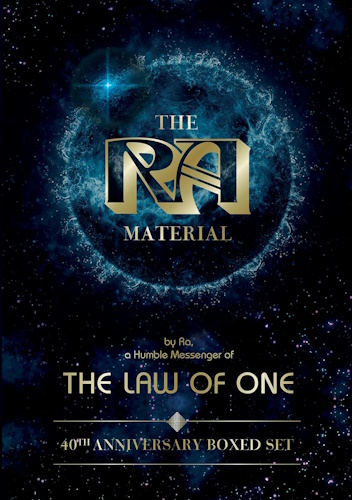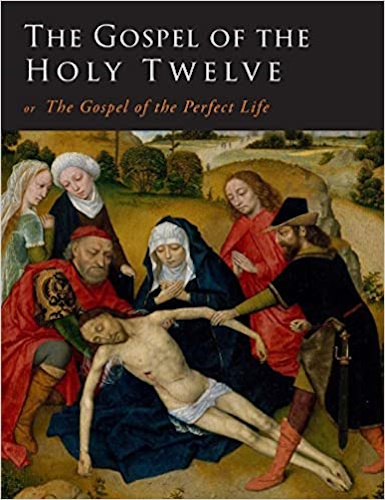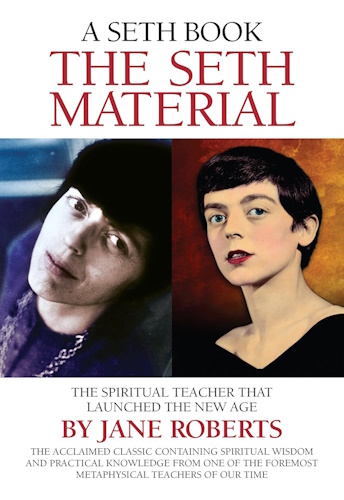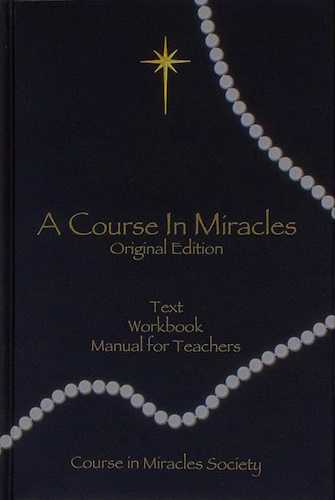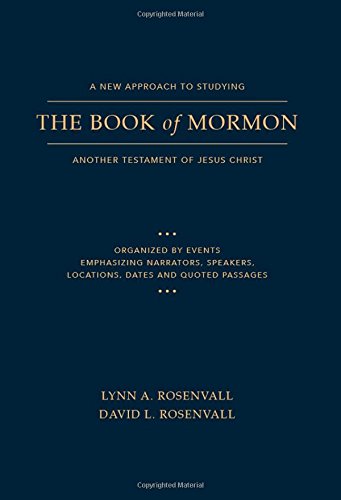
![]()
![]()
First Book of God
Chapter III
1. FROM Ze-wing'e, God raised up prophets for seven generations. Ze'wing'e begat Do Tse, who begat Yin, who begat Hi Ne, who begat Lan Se'ang, who begat Dhi Hsotch'e, who begat Ho Lon, who begat Po, who was an iesu in birth.
2. When Po was yet very young, the voice of God came to him, saying: Be steadfast in the doctrines of thy forefathers, eating neither fish nor flesh; thy God will not only preserve thee alive, but thou shalt gather together the scattered tribes of Zarathustrians, the Faithists, and re-establish them in this great land.
3. In those days many of the Zarathustrians
p. 315b
were celibates; and the king saw his people being reduced by war, and he made a law against celibacy, commanding all men to marry, and all women to bring forth children, or be put to death.
4. When Po was grown up, God said to him: Behold, thou canst not fulfill the law, for thou art iesu-born. But I will fetch thee a wife like unto thee, who is also barren, but ye twain shall be blessed with three children, and thou shalt call them Wan-le, Toghan, and Tse Loo.
5. And it came to pass that a woman of Hong Ge, with three adopted children, escaped from the tyranny of Dhi'wan, fleeing for the southern tribes of HiSeeGua and Yo, and Gwan Goon; and with her, Po wed, and he named his wife Ah T'dowh Jee.
6. Po was twenty years old when he married, and he went with his wife and three children to the country of Heng'a Di, which name signified brother land, and he labored at scutching flax and hemp.
7. And God came to Po, saying: What is the extent of thy fidelity to the All Highest Light?
8. Po said: I will obey him in all things.
9. God said: Wouldst thou sacrifice thy three sons, if commanded by thy Creator?
10. Po said: They are the Creator's, not mine. How dare I sacrifice that which is another's?
11. God said: Thou art wise; thou knowest the Ormazdian law.
12. Then Po asked: Who art thou? Who is this that cometh upon me silently, asking questions?
13. God said: Go thou, visit Hi Seiang, the philosopher, and question him.
14. Hi Seiang was governor of the south province of Heng'a Di, and was, withal, a man of great learning.
15. Po came to him and questioned him, saying: What is this that asketh us questions? Why do we question and answer ourselves all day long?
16. Hi Seiang answered: Are we not two selfs? Do we not discourse within ourselves like two selfs?
17. Po said: Which, sayest thou, is the superior self, that which questioneth within us forever, or that which is forever answering?
18. The governor said: That which asketh questions must be the superior self.
p. 316b
19. Po said: Who is it?
20. Hi said: It is nothing, it is something. Po answered him, saying: It appeareth to me, these two selfs are two different persons; one belongeth to the flesh, the other to the Creator. Because this questioning self is the same one that seeth and heareth Gods and angels.
21. Hi said: What sayest thou? God and angels?
22. Po replied: God and angels.
23. To which the governor took exception, saying: Dost thou too defy the law?
24. Po said: What I see I see, what I hear I hear. Something external to ourselves made us, and ruleth over us.
25. The governor asked: Have we not rid the world of superstition? Why dealest thou with doctrines that were in the dark ages? I tell thee there are two things only in all the universe; the unseen firmament, and the corporeal worlds that float therein. Their action and reaction on each other produce what we call life, which is but an effervescence that cometh and goeth, and there is the end. The laws are right. Han hath done a good thing in abolishing the doctrines of the ancients.
26. Whilst they were yet talking, God sent a blaze of fire into a bush standing nearby, and a voice spake out of the flame, saying: Who, then, sayest thou I am? For verily I am!
27. The governor saw the light, and beheld that the bush was not burnt; and he also heard the voice. But God suffered him to be hard of heart, and Hi said: Behold, thou comest to me, knowing I am a philosopher, and thou castest thy spell in the bush, like a magician. I am master of a thousand books, and am registered as a man of great learning. Thou hast offended me.
28. Po said: Why accusest thou me? For is it not just for me to accuse thee of casting the spell? I cast it not.
29. Again did God appear and speak, saying: Accuse thou not this, my son, Po. Thou shalt labor with him. Behold, I give into thy keeping the country of Feh; for even this hour hath died Moo Gwon. The tribes of Ghan shall be gathered together in Feh and Heng'a Di.
30. Hi Seiang, the governor, was astonished at the words of the Light;
p. 317b
and he sent a servant, to ascertain if Moo Gwon was dead; and it turned out to be true, though the distance was a day's journey each way.
-
Urantia Book, 44:0.11 - The Celestial Artisans
Never in your long ascendancy will you lose the power to recognize your associates of former existences. Always, as you ascend inward in the scale of life, will you retain the ability to recognize and fraternize with the fellow beings of your previous and lower levels of experience. Each new translation or resurrection will add one more group of spirit beings to your vision range without in the least depriving you of the ability to recognize your friends and fellows of former estates.
-
Princess Bride 1987 Wallace Shawn (Vizzini) and Mandy Patinkin (Inigo Montoya)
Vizzini: HE DIDN'T FALL? INCONCEIVABLE.
Inigo Montoya: You keep using that word. I do not think it means what you think it means. -
Urantia Book, 117:4.14 - The Finite God
And here is mystery: The more closely man approaches God through love, the greater the reality -- actuality -- of that man. The more man withdraws from God, the more nearly he approaches nonreality -- cessation of existence. When man consecrates his will to the doing of the Father's will, when man gives God all that he has, then does God make that man more than he is.
-
Urantia Book, 167:7.4 - The Talk About Angels
"And do you not remember that I said to you once before that, if you had your spiritual eyes anointed, you would then see the heavens opened and behold the angels of God ascending and descending? It is by the ministry of the angels that one world may be kept in touch with other worlds, for have I not repeatedly told you that I have other sheep not of this fold?"
-
Urantia Book, Foreword - 0:12.12 - The Trinities
But we know that there dwells within the human mind a fragment of God, and that there sojourns with the human soul the Spirit of Truth; and we further know that these spirit forces conspire to enable material man to grasp the reality of spiritual values and to comprehend the philosophy of universe meanings. But even more certainly we know that these spirits of the Divine Presence are able to assist man in the spiritual appropriation of all truth contributory to the enhancement of the ever-progressing reality of personal religious experience—God-consciousness.
-
Urantia Book, 1:4.3 - The Mystery Of God
When you are through down here, when your course has been run in temporary form on earth, when your trial trip in the flesh is finished, when the dust that composes the mortal tabernacle "returns to the earth whence it came"; then, it is revealed, the indwelling "Spirit shall return to God who gave it." There sojourns within each moral being of this planet a fragment of God, a part and parcel of divinity. It is not yet yours by right of possession, but it is designedly intended to be one with you if you survive the mortal existence.
-
Urantia Book, 1:4.1 - The Mystery Of God
And the greatest of all the unfathomable mysteries of God is the phenomenon of the divine indwelling of mortal minds. The manner in which the Universal Father sojourns with the creatures of time is the most profound of all universe mysteries; the divine presence in the mind of man is the mystery of mysteries.
-
Urantia Book, 1:4.6 - The Mystery Of God
To every spirit being and to every mortal creature in every sphere and on every world of the universe of universes, the Universal Father reveals all of his gracious and divine self that can be discerned or comprehended by such spirit beings and by such mortal creatures. God is no respecter of persons, either spiritual or material. The divine presence which any child of the universe enjoys at any given moment is limited only by the capacity of such a creature to receive and to discern the spirit actualities of the supermaterial world.
-
Urantia Book, 11:0.1 - The Eternal Isle Of Paradise
Paradise is the eternal center of the universe of universes and the abiding place of the Universal Father, the Eternal Son, the Infinite Spirit, and their divine co-ordinates and associates. This central Isle is the most gigantic organized body of cosmic reality in all the master universe. Paradise is a material sphere as well as a spiritual abode. All of the intelligent creation of the Universal Father is domiciled on material abodes; hence must the absolute controlling center also be material, literal. And again it should be reiterated that spirit things and spiritual beings are real.
-
Urantia Book, 50:6.4 - Planetary Culture
Culture presupposes quality of mind; culture cannot be enhanced unless mind is elevated. Superior intellect will seek a noble culture and find some way to attain such a goal. Inferior minds will spurn the highest culture even when presented to them ready-made.
-
Urantia Book, 54:1.6 - True And False Liberty
True liberty is the associate of genuine self-respect; false liberty is the consort of self-admiration. True liberty is the fruit of self-control; false liberty, the assumption of self-assertion. Self-control leads to altruistic service; self-admiration tends towards the exploitation of others for the selfish aggrandizement of such a mistaken individual as is willing to sacrifice righteous attainment for the sake of possessing unjust power over his fellow beings.
-
Urantia Book, 54:1.9 - True And False Liberty
How dare the self-willed creature encroach upon the rights of his fellows in the name of personal liberty when the Supreme Rulers of the universe stand back in merciful respect for these prerogatives of will and potentials of personality! No being, in the exercise of his supposed personal liberty, has a right to deprive any other being of those privileges of existence conferred by the Creators and duly respected by all their loyal associates, subordinates, and subjects.
-
Urantia Book, 54:1.8 - True And False Liberty
There is no error greater than that species of self-deception which leads intelligent beings to crave the exercise of power over other beings for the purpose of depriving these persons of their natural liberties. The golden rule of human fairness cries out against all such fraud, unfairness, selfishness, and unrighteousness.
